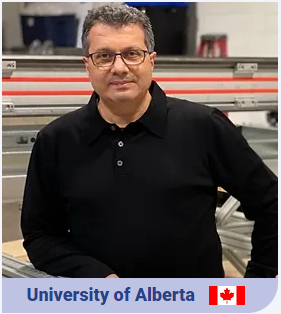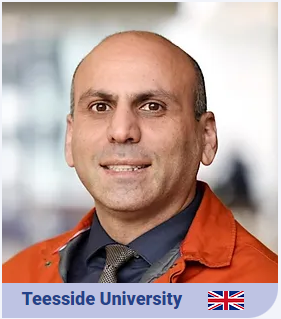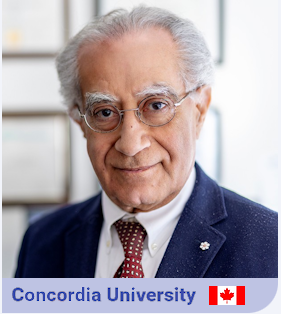Keynote Speakers
ISARC 2024
Pr. Thomas
|
Pr. Mohamed
|
Pr. Jongwon
|
 |
 |
 |
Pr. Farzad
|
Pr. Mirosław
|
Pr. Osama
|
 |
 |
 |
Keynote: Integrated BIM, Blockchain, and Multimodal Data-driven Digital Twins for AEC Industry Digitalization
Pr. Farzad RAHIMIAN
Biography
This keynote will focus on recent developments in utilizing blockchain and multimodal AI tools for data analytics to digitize the AEC (Architecture, Engineering, and Construction) industry. Evidence underscores that the construction industry’s transformation toward Industry 5.0 relies on integrating advanced technologies like Blockchain and the Internet of Things (IoT) as crucial prerequisites for automating value-added tasks and data acquisition systems. My team developed multimodal data-driven digital twins for the management and predictive maintenance of large infrastructure. We also developed blockchain-based solutions to digitize the financial management processes of construction projects.
This keynote will provide insights into combining IoT, blockchain, and BIM for circular supply chains in existing building stocks. Furthermore, I will utilize this opportunity to showcase our efforts in adopting a software development process to create an open web-based prototype, addressing existing gaps in semi-automated tools such as COBie. The prototype underwent testing using three case studies, revealing challenges in its application and emphasizing the necessity of replicating IFC-extracted data to the cloud server via linked servers in SQL.
With the rapid advancements in artificial intelligence (AI), advanced learning, transfer learning and deep learning (DL)-based crack detection techniques have garnered increased attention as a solution to issues faced during manual inspection. A prevalent deep learning technique for computer vision applications is the CNN. Finally, I will delve into our research on using deep learning to detect distress in highway pavements. For instance, our paper compares eight CNN models for crack detection, optimizing the detection process.
The keynote will also cover how we used scare learning and few-shot learning applications to facilitate AI-assisted decision-making in heritage assets with limited data-gathering access.
This keynote is timely as several applications of digital technologies are emerging in AEC, and a holistic view gained from a portfolio of projects can be insightful for researchers who are willing to embark on this journey.
Keynote: Automated Technologies for Offsite Construction from Lab to Commercialization
Pr. Mohamed AL-HUSSEIN
Biography
Since the dawn of the industrial revolution, efficiency has been a driver of innovation that has led engineers to invent new processes or improve existing ones by means of new managerial approaches. In this respect, the quest for efficiency in the field of building construction has led to the emergence of industrialization, which in turn has catalyzed the expansion of offsite construction. Industrialization coupled with offsite construction provides opportunities for improved quality, scheduling, and safety since work is performed within a controlled environment. These benefits, though, have been accompanied by several challenges, the most significant of which is perhaps the need for improved digitization from design and drafting practices (i.e., BIM) and implementation of automation or semi-automation in order to leverage the benefits of offsite construction. In this context, the culture among construction professionals in North America is characterized, as regards digitization and BIM, by a reliance on primitive CAD tools, and, as regards automation, by an approach best described as conventional construction under a roof.
This presentation aims at examining the practice or “culture” of construction in specific reference to: (1) process efficiency through digitization before the factory door (i.e. design and drafting), in the factory (door-to-door), and from factory to site-installation; (2) technological innovations (e.g., implementation of automation/robotics) in prefab construction (i.e., the move from conventional construction under a roof to true manufacturing); and (3) prefabricated systems including wood framing, Light Weight Steel structure, and newly developed systems for precast concrete panels for building and commercial structure (3iprecast.com).
